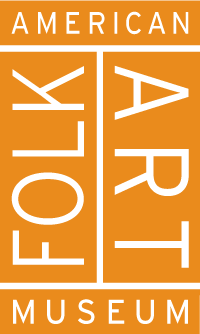A significant part of AFAM’s collection was produced by artists with disabilities working outside of conventional art institutions and contexts. Such objects and their makers challenge conventional modes of viewing and interpretation.
In this program series, Curator Brooke Wyatt invites curator and scholar Jessica A. Cooley to present her concept of crip* materiality, which addresses the unseen ableism in the care, conceptualization, and exhibition of material objects in museum institutions. During the first half of the program, the speakers will unpack terms such as “crip,” “ableism” and “disability justice,” by discussing their complex history and explaining their significance within a museum context. The conversation will encourage participants to rethink assumptions about what constitutes a museum-quality art object, while uncovering new ways to approach disability and resistance within museum collections.
This program will highlight ethical questions raised in the collection, interpretation, and display of works by artists including James Castle, Martha Ann Honeywell, and Martín Ramírez, as well as the collection of hand-tinted vernacular photographs currently on view in the exhibition Material Witness: Folk and Self-Taught Artists at Work.
Space is limited; advance registration is required. Please consider making a donation when you register to support ongoing virtual programming. Instructions for joining with a Zoom link and password will be provided by email upon registration confirmation under “Additional Information.” ASL interpretation and live captioning in English will be provided. For questions or to request accessibility accommodations, please email publicprograms@folkartmuseum.org.
* From Jessica Cooley: The use of the word crip comes out of the academic field of “crip theory.” The foundation of crip theory has intentional ties to queer theory as both reclaim words of injury to politicize and decenter the legal and medical spheres’ sterile and pathological labels of “homosexual” and “disabled.” Or, as disability activist Eli Clare proposed in 1999: “Queer and cripple are cousins: words to shock, words to infuse with pride and self-love, words to resist internalized hatred, words to help forge a politics.” (Clare, Exile and Pride, p. 84.)
About the speakers
Jessica A. Cooley (she/her/hers) is a scholar-curator with a PhD in art history from the University of Wisconsin-Madison. Her first book project centers on what she calls “crip materiality” and will forward a new methodology to address how ableism affects the understanding and valuation of the very fibers of art materials within curatorial and conservation discourses. Cooley was a guest curator for the Ford Foundation Art Gallery from 2019-2022 where she co-curating a multi-year online and in-person exhibition project titled “INDISPOSABLE.” From 2006–2010, Cooley served as assistant curator at Davidson College’s Van Every/Smith Galleries where she curated numerous exhibitions including two that are considered among the first in the nation to investigate the intersection of disability and art: RE/FORMATIONS: Disability, Women, and Sculpture (2009) and STARING (2009). Currently, Cooley is serving as the ACLS Emerging Voices Fellow for the University of Minnesota’s Liberal Arts Engagement Hub.
Brooke Wyatt is Luce Assistant Curator at the American Folk Art Museum where she is working on a series of exhibitions drawn from the Museum’s collection of folk and self-taught art. She practiced as a clinical therapist in community mental health settings and worked as an art teacher before beginning her PhD in the History of Art and Architecture at the University of Pittsburgh. Brooke’s doctoral dissertation, titled “Séraphine Louis and French Self-Taught Art in Transatlantic Modernist Discourse,” explores the material and representational strategies of the French artist Séraphine Louis, foregrounding how histories of race, gender, class, and disability have shaped the reception and exhibition of Louis’s work across Europe and the Americas from the late 1920s to the present day.
Inspired by artist and writer Lorraine O’Grady who uses the concept of “both/and” to think in a non-hierarchical way, the “Both/And” program series explores the breadth and complexities of AFAM’s collection beyond the untrained/skilled, craft/art, and amateur/fine art divides. Speakers approach artists and their objects as agents capable of posing questions to us, the viewers, rather than the other way around.
Material Witness is generously supported by a grant from the Henry Luce Foundation. Presented in the Daniel Cowin Gallery – originally established by Trustee Joyce Berger Cowin in memory of her husband, also a Trustee and champion of the Museum, it includes recently acquired works, including selections from the Audrey B. Heckler collection, and gifts from Jill and Sheldon Bonovitz, Peter J. Cohen, and Willett Bracken Evans.
Images:
Left: Photographer unidentified, c. 1915-1960, hand-tinted photograph. American Folk Art Museum, New York; gift of Peter J. Cohen. Right: James Castle, Untitled, c. 1931-1977, color of unknown origin and soot on found paper, 6 3/4 × 4 3/4 in. American Folk Art Museum, New York, Gift of Dorothy Trapper Goldman. Photo Credit: Gavin Ashworth
